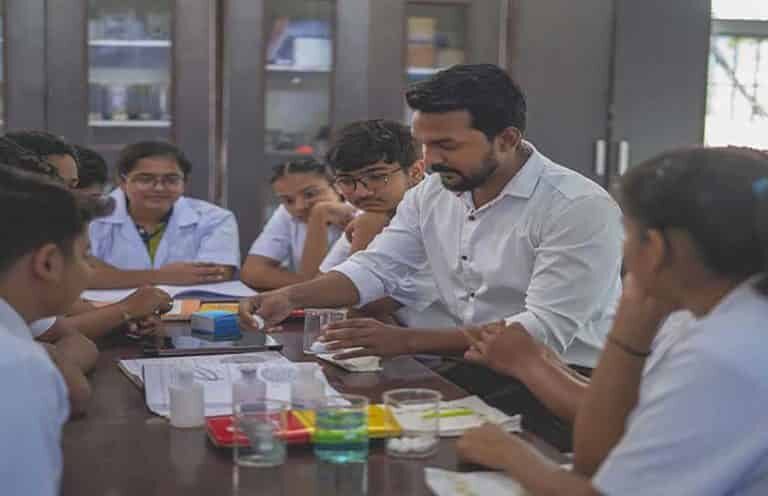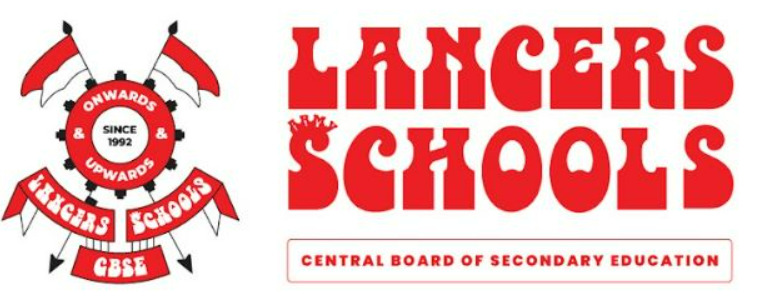
For conquering the CBSE syllabus, we must have a planned route which involves adherence to the specified requirements by school hand in hand with the innovative methodologies of teaching that are students need oriented. It is the duty of the educators to blend the old teaching methods with the modern ones like use of technology, project-based learning and interdisciplinary methods to promote the complete development of the students. Teaching procedures must be flexible to help teachers design different types of lessons to match with multiple learning styles and to ensure that standards and guidelines of CBSE are maintained. It is necessary to shift the focus from memorizing by rote to understanding of the concepts and using them for relevant application, which, in turn, inspires students to think critically and creatively. This is possible to achieve when the educators strike a balance between the CBSE curriculum and the journey of the students, thus making the students learn all that they need to know in order to be successful in their studies and even in their lives after their academic careers.
Enriching Learning Beyond Textbooks
Enriching learning beyond textbooks is pivotal for the holistic development of students in CBSE schools. Despite the fact that textbooks offer help in the building up of a strict scheme, instructors do believe that in addition to classroom lectures and other learning sources, educators also choose interactive activities. Through the use of multimedia gadgets, educational applications, and online arenas these institutions can pave the way for vibrant learning spaces which can support learners with different learning styles and promote deeper involvement with the content.
Furthermore, CBSE schools attach an importance to the incorporation of extracurricular activities into the learning process so that the learning experience is enriched. Involvement in sports, club, art and community services sparks off the students on the life path they follow developing core life skills of teamwork, self-reliance and empathy. Besides, these non-formal studies help one to appreciate the education that we receive in the schools that offer CBSE as well as explore our interest and skills enabling us to have a good academic life.
CBSE’s Competency-Based Evaluation System
The competency-based evaluation system of CBSE that sets it apart from the conventional exam-based form of assessing student’s proficiency in their courses on the basis of their level of competency in the subjects, rather than their capability of the memorization. This is an approach that with time, would help student’s understand the concepts better and help develop higher order thinking skills, creativity, and problem solving abilities in students of CBSE schools in Surat. The CBSE curriculum enables students to demonstrate their proficiency in various domains through continuous evaluation methods like formative assessments, projects, and practical demonstrations.
Furthermore, CBSE schools in Surat play a major role in determining and configuring the nature and shape of the competency-based evaluation system which would be suitable to serve the specific needs of the school. Via teacher training programs, workshop s and joint initiatives parents in these schools the help to gain the competencies required in assessing learners as per CBSE standards. Moreover, the creation of a conducive learning environment that promotes the idea of trying new things and developing a growth mindset will enable students to excel in this evaluation system and thus be prepared for the later life challenges in the higher education and beyond.
Integrating Environmental Studies in CBSE Curriculum
Integrating environmental studies into the CBSE curriculum is essential for cultivating ecological awareness and responsibility among students, particularly in the context of the best CBSE schools. Addressing issues like climate change, conservation, and sustainable development will not suffice to prepare students to take up these challenges, which is why they should get to study about them throughout the educational process. By learning about these issues by combining science, social studies, and ethics that help students see the whole picture and how environmental issues are interconnected with societal dynamics.
Besides, the best schools of CBSE know the great value of the experiential learning in the environmental studies, so they offer the students the possibility to involve themselves in the hands-on activities, field trips and community projects. Through the actualizing of students in real environmental situations, and besides that, these schools develop the spirit of being environmental stewards, and as a result, students become the promoters of positive changes in their communities. Wi thi environmental stud i e s includ ing the CB SE caMB s, the best CB SE schools tr ai ninderswho are conversant with incident issues around enviromental issues and are ready to shape an environmeally friendly future.
Frequently Asked Questions
Q1. Why should students choose the CBSE curriculum?
A. Students should opt for the CBSE curriculum for its complete and systematic method of learning, focus on the whole development of the person, national recognition, flexibility, and similarity with the competitive exams for higher education and career opportunities.
Q2. What are the unique advantages of the CBSE education system?
A. The CBSE curriculum is well-structured and integrates holistic development, it is Nationally acclaimed, it provides diverse subject consideration, it is based on the assessed system and finally, it prepares students for competitive examinations for higher education and job opportunity.
Q3. How does the CBSE curriculum foster critical thinking and problem-solving?
A. CBSE curriculum is constructive when it comes to improving cognitive skills such as critical thinking and problem solving with the help of inquiry-based learning, interdisciplinary approaches, practical applications of ideas and assessment methods that require analyses, interpretation, and application of the learned.

